Smith Overtake MIPS helmet review
The Overtake is Smith’s top road helmet, incorporating its koroyd honeycomb structure and now with MIPS as standard
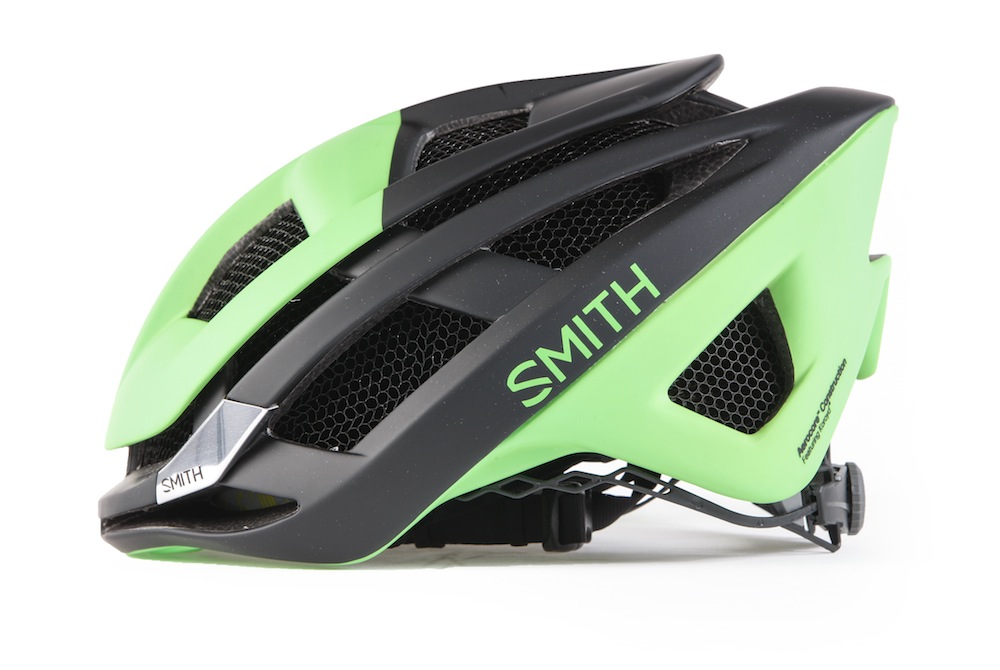
The Overtake MIPS is a nice looking helmet with a quality design. Its koroyd layer provides more crash protection than polystyrene and it comes with MIPS too.
-
+
Comfortable
-
+
Different-looking
-
+
Open, aero design
-
+
Koroyd impact protection – and acts as a bug net too
-
+
MIPS liner
- +
-
-
Wide brim to front of helmet
-
-
Feels a bit hotter than some at lower speeds
- -
You can trust Cycling Weekly.
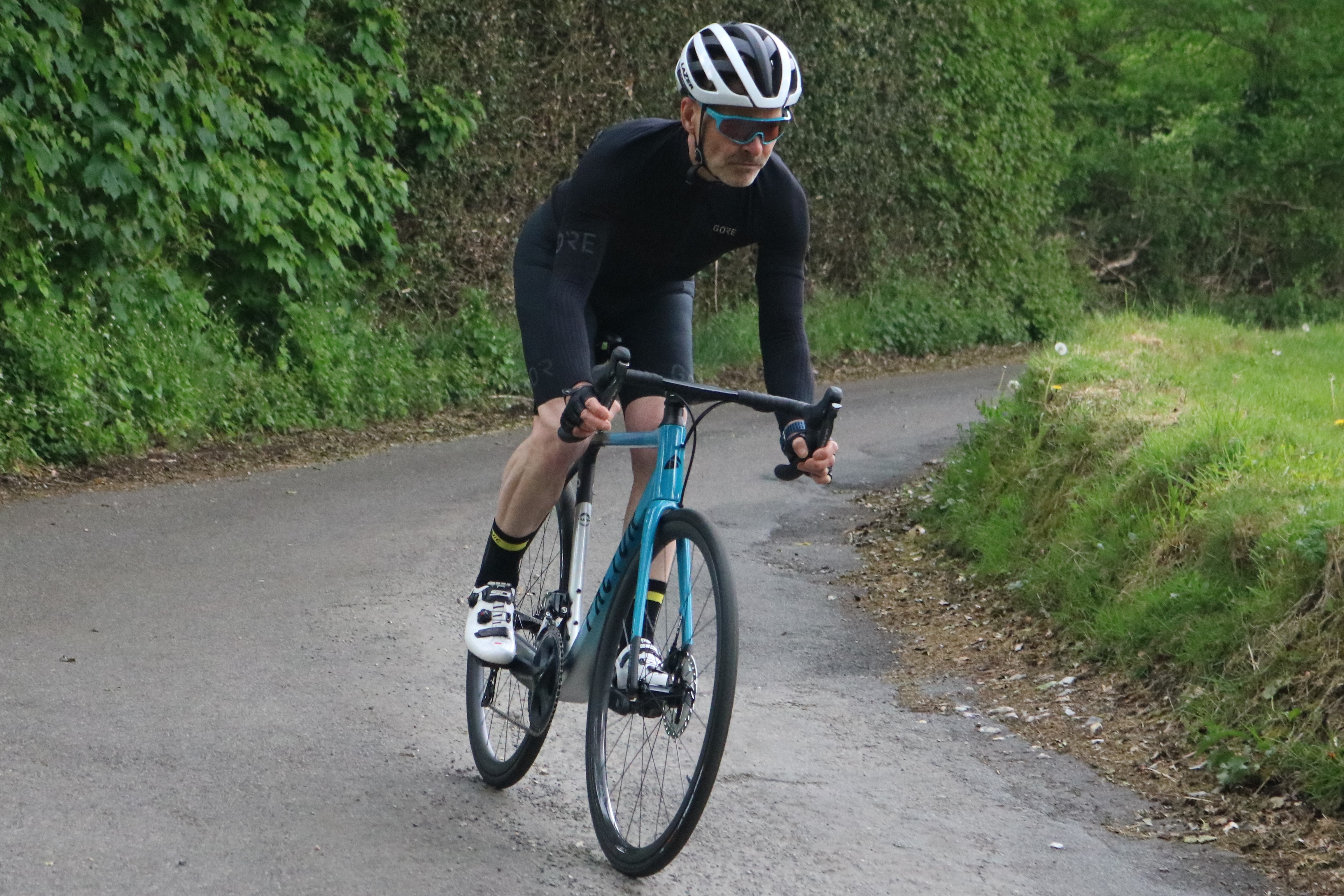
Unlike most helmets, where the polystyrene body provides impact protection too, Smith has incorporated a layer of koroyd within the outer shell. Smith says that this provides more protection than polystyrene, as it’s more crushable.
Since it surrounds the whole head, it also provides more structure to the helmet than a standard vented design. This allows Smith to provide the Overtake with larger openings, helping with air circulation and cooling.
There are a total of 21 vents, including slot vents in the quite wide brim, to channel air over the forehead well. The grooved vents are designed to fit Smith’s sunglasses if you want to take them off during a ride. This works well and with other brands’ glasses too, although it’s a bit fiddly to get the glasses positioned properly.
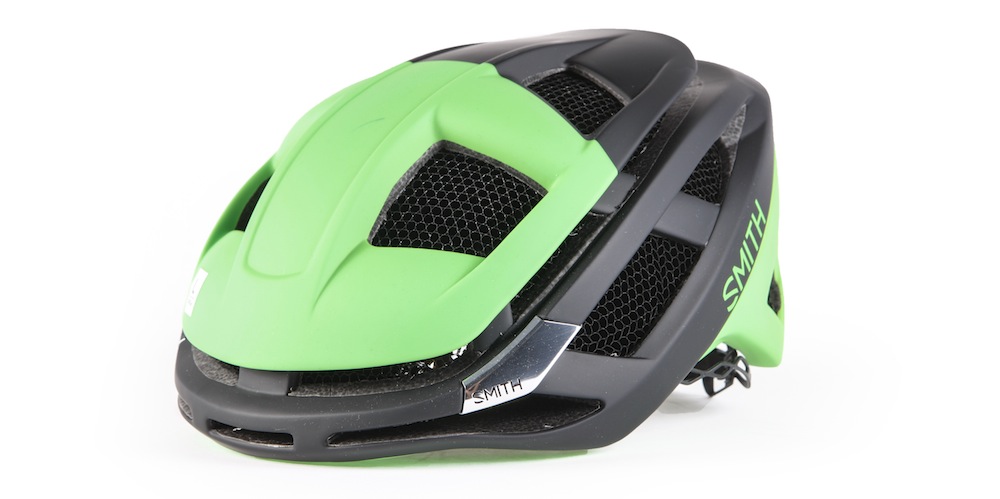
On the very inside of the Overtake, there’s a MIPS liner. In the event of a crash, this slips against the outer helmet, helping to avoid energy in a glancing impact. MIPS is an increasingly popular inclusion in helmets from a wide range of brands. There are plenty of spaces in the liner, so it does not affect air circulation.
Smith makes the Overtake in a wide range of colours, including this matt green. There are also gloss finished options available and three different sizes. At 300 grams for a size large, it’s mid-weight for a MIPS helmet. The outer shell surrounds all the polystyrene parts of the helmet, so unlike in some they don’t tend to get dented over time.
There’s not a lot of padding in the Overtake, but it’s well positioned and I found the helmet comfortable with no obvious pressure points. The cradle supports well too, with a large rubber dial adjuster.
At higher speeds, ventilation is good, particularly if you adopt a more head-down riding position. The koroyd structure is very effective at channelling air to the head. Start to climb and the Overtake doesn’t feel quite as cool as some conventionally vented helmets though.

Another advantage of the koroyd structure is that it acts as a bug net. This has been useful in the summer as I found that insects bounced off it rather than settling in my hair. And I like the aggressive styling of the Overtake, which is a bit different from many competitors.

Thank you for reading 20 articles this month* Join now for unlimited access
Enjoy your first month for just £1 / $1 / €1
*Read 5 free articles per month without a subscription

Join now for unlimited access
Try first month for just £1 / $1 / €1
Get The Leadout Newsletter
The latest race content, interviews, features, reviews and expert buying guides, direct to your inbox!
Paul started writing for Cycling Weekly in 2015, covering cycling tech, new bikes and product testing. Since then, he’s reviewed hundreds of bikes and thousands of other pieces of cycling equipment for the magazine and the Cycling Weekly website.
He’s been cycling for a lot longer than that though and his travels by bike have taken him all around Europe and to California. He’s been riding gravel since before gravel bikes existed too, riding a cyclocross bike through the Chilterns and along the South Downs.
-
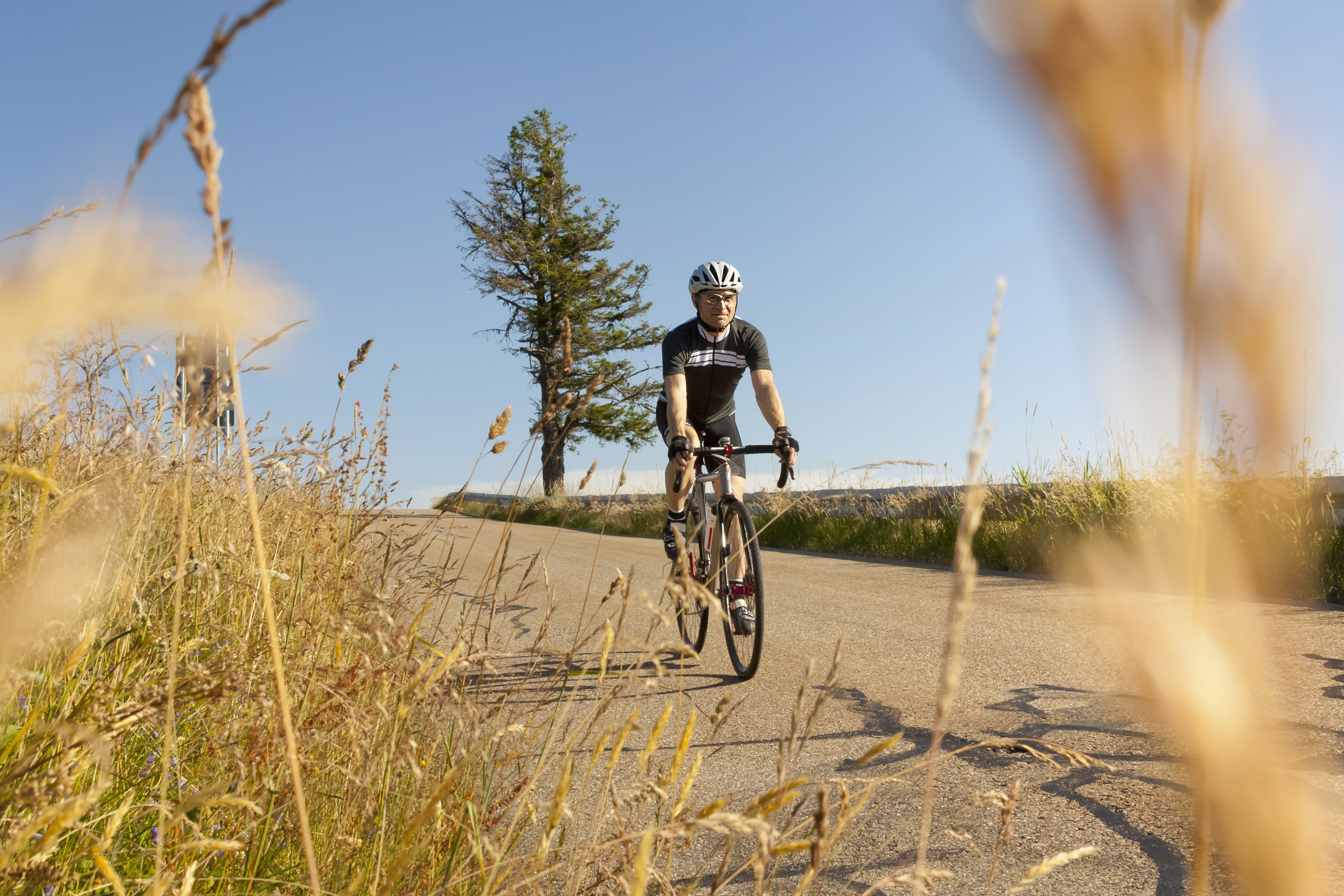 Hayfever and your riding: how to combat it as the pollen strikes
Hayfever and your riding: how to combat it as the pollen strikesExplanations, medications and holistic measures to make your spring and summer riding more enjoyable
By James Shrubsall Published
-
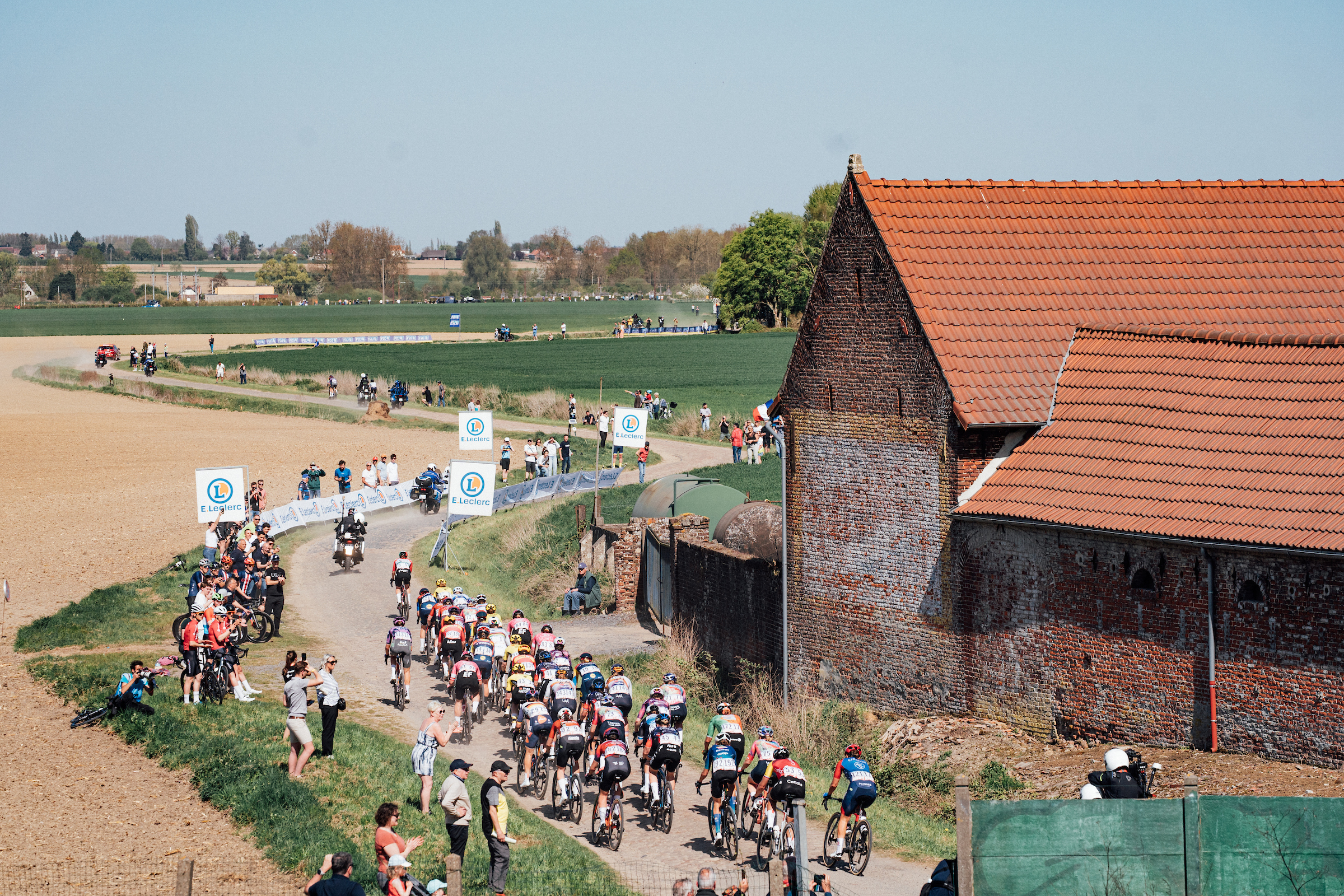 I went to Paris-Roubaix Femmes and was shocked at how it is still treated as secondary to the men’s race
I went to Paris-Roubaix Femmes and was shocked at how it is still treated as secondary to the men’s raceThe women’s version of the Hell of the North is five years old, but needs to be put more on equal footing with the men
By Adam Becket Published
-
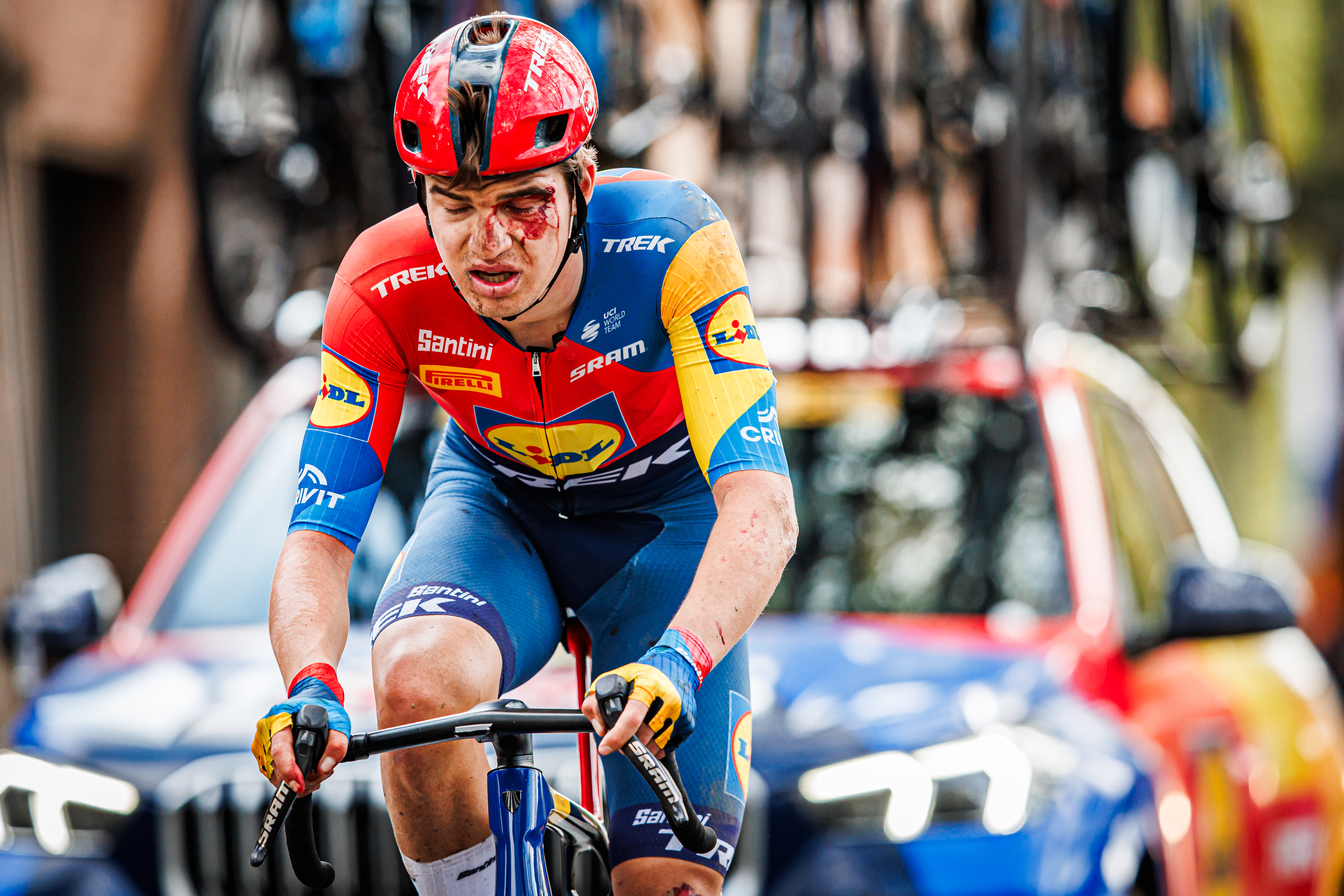 Broken hips, hands, and collarbones: Paris-Roubaix's lengthy injury list lays bare brutality of race
Broken hips, hands, and collarbones: Paris-Roubaix's lengthy injury list lays bare brutality of race"It probably wasn't the best idea to continue," says one of weekend's many wounded riders
By Tom Davidson Published